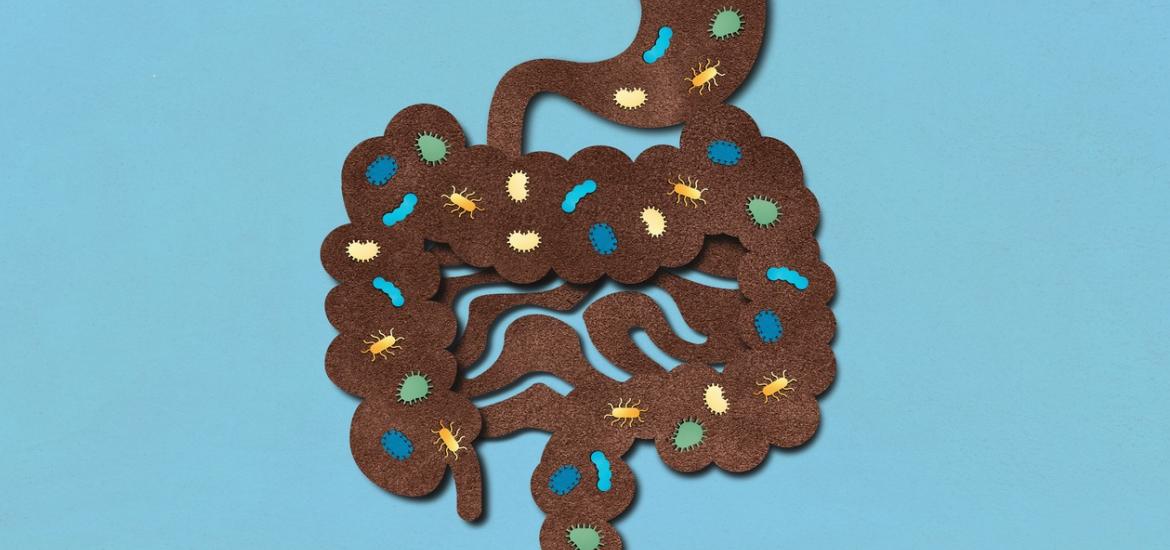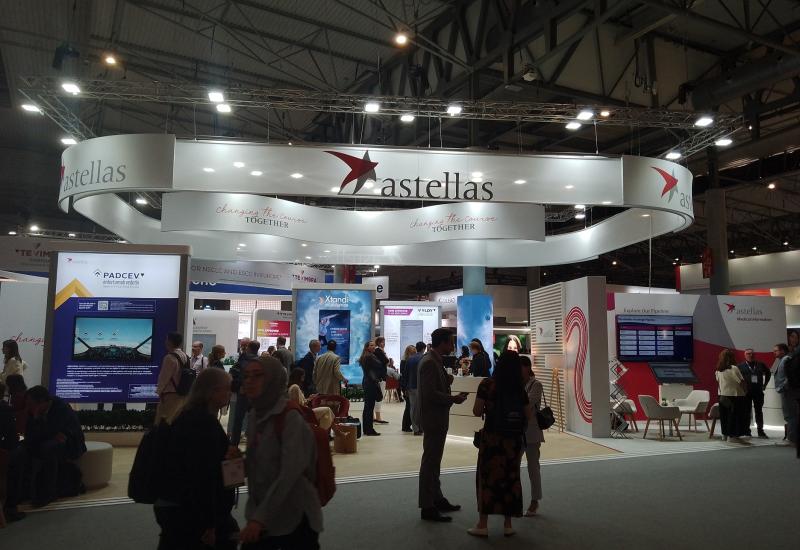
Microbiome make or break time for MaaT Pharma
The group reports more data today, while its pivotal Ares trial, in acute graft-versus-host disease, is set to read out in the fourth quarter.
The group reports more data today, while its pivotal Ares trial, in acute graft-versus-host disease, is set to read out in the fourth quarter.

The microbiome arena has had various setbacks, but did see a drug approved last year, Nestlé/Seres’s Vowst, for Clostridioides difficile infection. MaaT Pharma has also pinned its hopes on the microbiome, but unlike other players it's focused on cancer and related conditions.
The French group’s biggest test yet is coming in the fourth quarter of this year, when it will report data from the phase 3 Ares study of its lead project, MaaT013, in late-line acute graft-versus-host disease. MaaT hopes that showing proof of concept here will help fuel its broader efforts, including in solid tumours.
However, readout from the trial – which was separately the subject of a now-resolved clinical hold in the US – has been delayed, and MaaT is running low on cash. The company currently only has enough to last it until September.
The company might hope to raise funds based on an update from its early access programme with MaaT013, press released today and being presented on Wednesday at the European Society for Blood and Marrow Transplantation meeting in Glasgow.
“It’s clear certain investors have sufficient confidence to invest now, rather than later,” MaaT’s chief executive officer, Hervé Affagard, told ApexOnco ahead of the EBMT release. But overall confidence in the group’s approach doesn’t seem to be too high, with its market cap sitting around €100m.
GvHD can arise following allogeneic haematopoietic stem cell transplantation (HSCT), when the transplanted cells recognise the host’s cells as foreign and attack. Steroids are the first line of therapy; more recently, Novartis/Incyte’s Jakafi has emerged as a second-line option, including for acute disease.
Separate treatments for chronic GvHD include Sanofi's Kadmon-originated Rezurock, AbbVie's Imbruvica and, perhaps soon, Syndax/Incyte's axatilimab.
Resetting the equilibrium?
However, there are still acute GvHD patients who don’t respond, and for these the prognosis is grim.
There is evidence that HSCT alters the microbiome, and this is where MaaT013, an enema-delivered product containing faecal microbiota from healthy donors, could come in. MaaT believes that, by restoring the microbiome, the therapy resets the immune system’s equilibrium.
“80% of cells from the immune system reside in the gut,” Affagard said, highlighting the relationship between the microbiome and immune cells.
In Ares, MaaT is setting its sights on the 30% of acute GvHD patients resistant to steroids and Jakafi who, it says, have an 80% two-month mortality rate.
Because there’s no standard of care in this setting Ares is an uncontrolled trial, something MaaT says regulators are on board with.
GI-ORR
The primary endpoint of the 75-patient study is gastrointestinal overall response rate. While conventional ORR, used in cancer trials, measures tumour shrinkage, GI-ORR is primarily concerned with the volume of a patient’s diarrhoea, explained Professor Mohamad Mohty of the Saint-Antoine Hospital in Paris and a member of MaaT’s scientific advisory board.
“We know [that] having less diarrhoea and less inflammation will allow patients to survive longer,” he said. Overall survival data from Ares are due in mid-2025.
The latest results from MaaT’s early-access programme show a GI-ORR of 52% at day 28 among 140 patients who had failed one to six prior lines of therapy. 42% of patients were still alive at 18 months.
MaaT will hope to get close to these numbers in Ares; Mohty added that a 40% or greater GI-ORR would be meaningful from a clinical and regulatory perspective.
The company hopes to launch MaaT013 in 2026 in this third-line niche, but this only accounts for around 3,000 patients per year. MaaT also has plans in earlier GvHD settings, and is already trialling an oral capsule-based therapy, MaaT033, to prevent HSCT complications; the ongoing placebo-controlled phase 2 Phoebus trial isn’t expected to yield efficacy data until late 2025, Affagard said.
With only €24m in the bank at the end of last year MaaT will need a lot more cash to get to this point. The company’s future depends on how much promise investors see in data from the early access programme and, ultimately, the Ares trial.
Trials of MaaT013
| Study | Setting | Control arm | N | Results |
|---|---|---|---|---|
| Ph2 Heracles | 2L acute GvHD | None | 24 | ASH 2021: 38% GI-ORR; 25% OS at 1 year |
| Early access programme | 2-7L acute GvHD | N/A | 140 | EBMT 2024: 52% GI-ORR; 42% OS at 18 months |
| Ph3 Ares | 3L acute GvHD | None | 75 | GI-ORR due mid-Q4 2024; OS due mid-2025 |
| Ph2 Picasso* | Metastatic melanoma | Opdivo + Yervoy | 60 | Due late 2024/early 2025 |
Note: *investigator-sponsored trial. Source: OncologyPipeline.
This story has been updated to clarify the timing of the Ares readout.
1135













